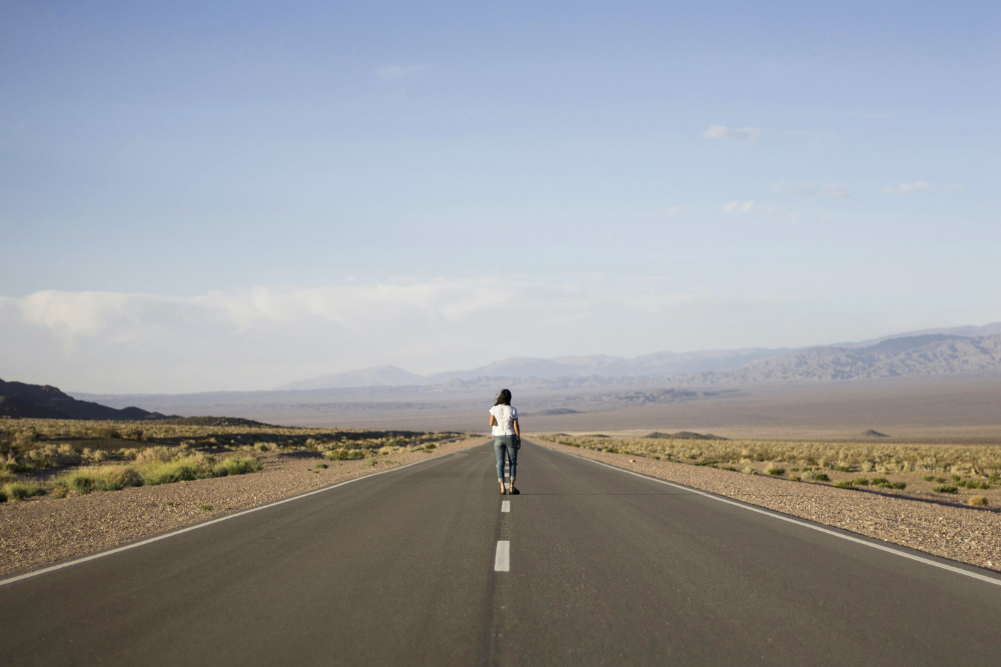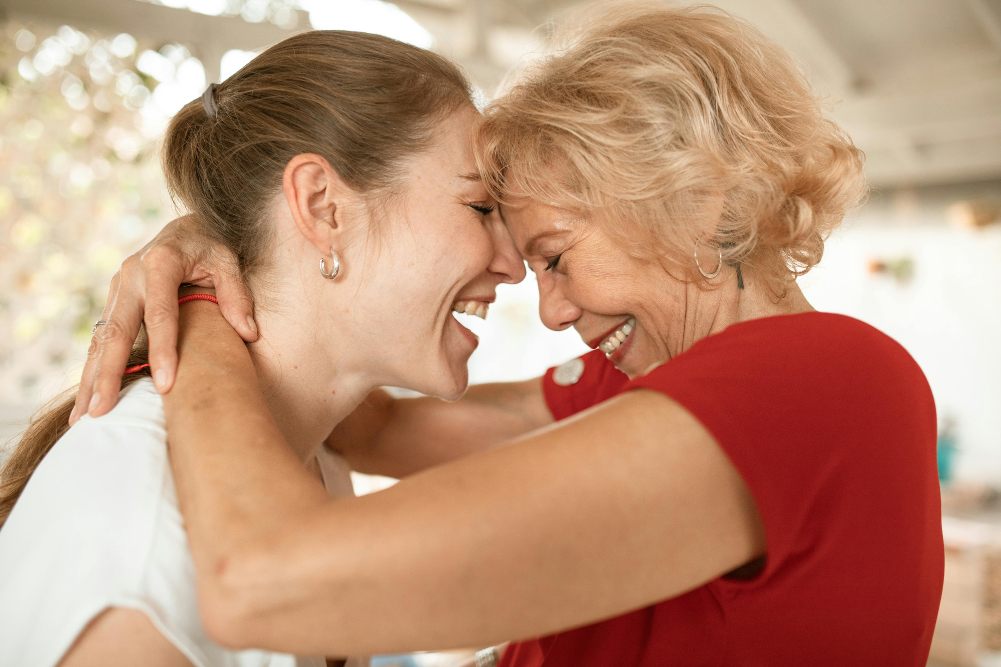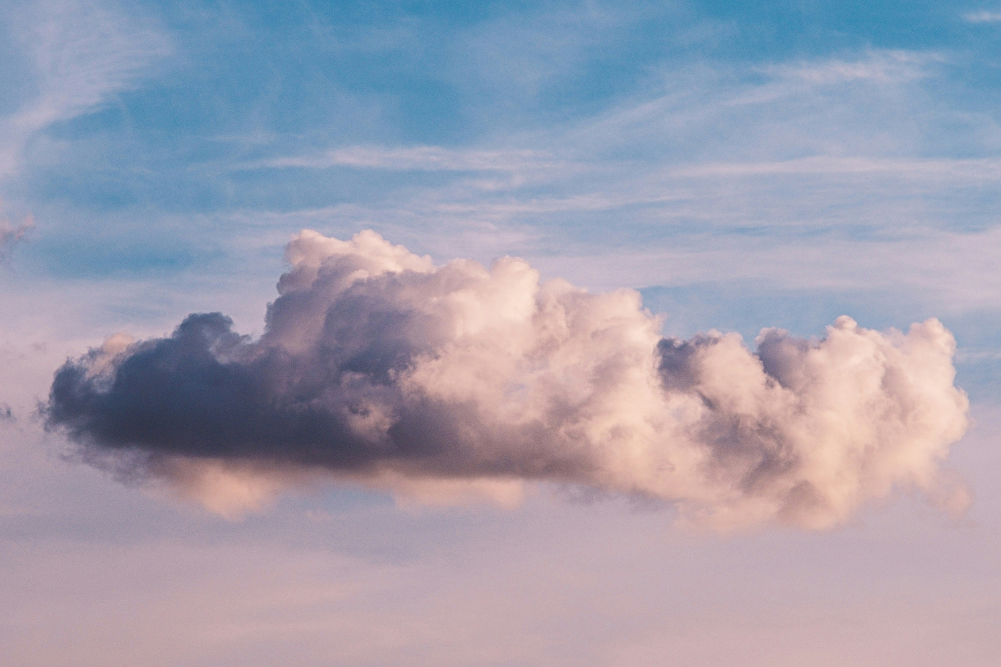The upside of uncertainty
Embracing uncertainty as a catalyst for growth, creativity and mindful decision-making in this empowering guide to life’s unknowns.
Instead of a promotion, you’ve just been made redundant and discovered your not-so favourite cousin is staying with you for a month. You’d be forgiven for curling up on the couch with a tub of caramel-swirl ice-cream and thinking, “Well, life really does suck at the moment.” No matter how it feels right now, it’s not all gloom and doom.
During periods of uncertainty, we peel back the jumbled intricacies of our humanity and truly thrive. We cut to the chase, to the heart of what we truly care about.
Authors of The Upside of Uncertainty: A Guide to Finding Possibility in the Unknown, professor Nathan Furr and entrepreneur Susannah Harmon Furr, believe uncertainty can be a gift. “Even now, behind every uncertainty you are facing, even the unwanted and unpromising varieties — insight, growth and possibility — are waiting in the wings,” note the authors. “We’re all wired to fear the downsides of uncertainty, but forget that change, creation, transformation and innovation rarely show up without some measure of it.”
By being let go at work, you might decide on a career pivot and score the job of your dreams. By spending time with your cousin, you might recapture the closeness you shared as kids. Unknowing means we can stay open to new experiences. We can reassess our values. If we’ve been through a traumatic or uncertain time, we can reflect on what really matters to us.
Which way is up?
Predictability is comforting, we want to know what’s next. Not knowing can make us feel vulnerable and uncomfortable, especially if we subscribe to the theory that if we take specific steps or actions, we’ll get the results we’ve worked towards.
In Uncertain: The Wisdom and Wonder of Being Unsure, author Maggie Jackson writes, “Humans are built for survival’s sake to yearn for answers and for the predictability that offers them up.”
She adds it’s a proven psychological finding that people tend to be more stressed if they don’t know an electric shock is coming than if they are pretty sure they will get one. Basically, we want to know, even if it’s going to hurt.
But life is not predictable. It’s messy, wonderful and crazy. Sometimes it’s so loud, you just want to ignore the chaos inside your head, sit on a beach and feel the warm sand scrunch between your toes.
But unknowing can be cool, for a host of reasons. Uncertainty allows you to cultivate your own creativity, to seek your own truths. It offers opportunity to build strength and resilience.
The reality is, we just need to roll with it sometimes. Clinical psychologist Dinusha Cragg says being accepting of uncertainty allows us to be more psychologically flexible. “It means we can make more mindful choices and conscious decisions, which align with our values,” she explains.
If we press pause, it allows us to think about what matters to us. It can give us an opportunity to explore different possibilities. “There is something really beautiful about uncertainty, even if it does feel a bit uncomfortable at times,” says Cragg.
We live in an uncertain world
The last handful of years have been tumultuous with the pandemic, the soaring cost of living, natural events that have brought townships to their knees and global social turmoil. Many people are struggling and trying to make sense of it all.
Meanwhile, technology forges ahead, at breakneck speed. AI is an insatiable force, even though movers and shakers like Elon Musk and other tech giants have voiced concerns it can pose profound risks to society and humanity. Plug in an algorithm and AI can spit out an answer. It doesn’t factor in the human element, our thoughts, our fears. Questions are asked and answered at quantum speed.
These days, there’s pressure to know all the answers and to make quick decisions. Some popular culture tells us if we don’t know all the answers that, somehow, we have failed. And that is simply not true.
Uncertainty impacts all of us differently. Intolerance to uncertainly is viewed by those who have an anxious disposition as something to be feared. Others can look at uncertainty as a challenge or a potential new adventure. Uncertainty also allows us to slow down, to see what opportunities are waiting if we contemplate taking a different path.
The decision dilemma
Maybe I should? Or shouldn’t I? If you’ve ever felt crippled by the sheer frustration of not being able to make a decision, you are not alone. It’s not always easy to make big choices, especially when a lot is at stake.
Do I stay in a relationship where I feel like I’m losing myself, because I don’t want to be alone? Should I coach my son’s soccer team, I’m already slammed with commitments?
Indecision can feel soul destroying. But we don’t always have it all figured out, right now. Not having all the answers, and resisting the urge to make snap decisions, can be a good thing.
If you do tend to rush into decisions, research shows it could be worthwhile rethinking that strategy. Work by Columbia University Medical Centre showed the accuracy of a decision can be improved by a mere fraction of a second just by taking a beat.
If you can’t decide, look within, find your inner truth. Learn to trust your intuition to see that you are consciously making choices that align with your values, or higher self. Maybe you are making decisions based on your internal beliefs about what you feel you deserve? If you feel like you walk through life with a post-it note stuck to your forehead that says “please like me”, take it off and put it on the mirror. Quiet your inner critic with positive self-talk. You are a unique human who is worthy of love and compassion. Forgive yourself.
If you are feeling stressed about uncertainty, stop. Right now. Breathe in and out. If you are feeling anxious about a decision, it can cloud your judgement. Your inner knowing, your intuitive self, is lost in the voices telling you what you “should” do.
Recognise your own true value and self-worth. Practise the art of self-compassion. If you are constantly being critical of yourself, that can feed into negative self-perception and lead to feelings of anxiety and depression. Next time you are at a crossroads and need to make a choice, look within. Stay curious about this world we live in. Be true to your authentic self.
Positivity in indecision
Some decisions are those of the everyday variety. Will I wear my hair up or down? Poached eggs or French toast? Heels or comfy flats? Each and every day, we make around a staggering 33,000 decisions. Some are made consciously, but many are spontaneous or involuntary. Dr Elisabeth Shaw, clinical psychologist from Relationships Australia, says some decisions are simply automatic, “Like putting one foot in front of the other. That’s why when we are faced with uncertainty, it can sometimes stop us in our tracks,” she explains. “But that’s OK to think, right? This means I really need to give that problem some thought.”
Uncertainty does feel uncomfortable. Dr Shaw acknowledges that being able to tolerate uncertainty is in fact a skill in itself. “It takes a lot of maturity and selfknowledge to see the value of uncertainty,” she says.
Dr Shaw says it’s all about how you look at it. “See uncertainty as a point of reflection, a diagnostic sign that you are in unfamiliar territory,” she says. “That
means slowing down and giving it more consideration, value it as a step in good decision-making.”
Sometimes things are simply out of your control. Nothing you say or do will change that. At times, you simply need to sit with feelings of uncertainty. How
events unfold will happen in their own time.
But if you are struggling to make a decision about something you need to, there are some practical things you can do. If you are a logical thinker, try looking at it strategically — weigh up the cost vs benefit of choosing one thing over the other.
Try to visualise the outcome and pay attention to how that makes you feel.
Cragg says if a decision needs to be made, there are some valuable strategies to try. “I’m a big fan of a pros and cons list, and also set a time limit or deadline to make your decision” she says. Reach out to those whose opinions you trust and brainstorm ideas to gain another perspective. Cragg says breaking down the decision into smaller manageable steps can also be helpful. “This can reduce the feeling of being overwhelmed,” she says.
When push comes to shove
If you are being rushed into making a decision that is out of your comfort zone, know that it’s OK to gently push back. Sometimes others will put you under pressure to decide, because of their own agenda. If you are being hurried along, Dr Shaw suggests testing the assumption that the urgency to decide is in fact a genuine one. “You could say, ‘I’ll get back to you on that one,’” she says. “Sometimes the other person just wants you to say, ‘I’ve got this’.”
In the workplace, leaders are decision makers. Workplace culture values a good leader who is confident, who can make snap decisions, who knows what to say or do at any given time. But we are currently seeing a subtle paradigm shift that shows the value of vetoing speedy decision-making. “There’s been significant work done in terms of leadership and management theory, and decision-making,” notes Dr Shaw. “It speaks to slowing down and taking time, to making sure you fully come to grips with the problem before rushing to a solution, which can be good for everyone.”
You might make speedy decisions at work, but find yourself in hot water with your tribe at home, if you make quick autocratic decisions. Dr Shaw says this can feel dismissive and uncomfortable. “If you rush to certainty at an interpersonal or intimate level, other people might feel like they aren’t being heard, they might feel you are being insensitive,” she says.
When you decide — it’s not foolproof
If you’ve decided, don’t stress about the maybes, wanna bes, could haves or should haves. When having to commit on big decisions, let your feelings be your guide. What brings you joy? If you visualise how your life will be after the decision is made, how does that feel for you? All you can do is make the best decision you can, based on what you know, at the time. Then have faith that it will work out.
Cragg says no matter which way you go when making an important decision, there is a possibility that you may second-guess yourself. “If you are making big decisions, to stay in a job, or leave a relationship, for example, know that often whichever choice you go with, there could still be an element of scepticism,” she says. “Part of making a decision might also be creating a space to feel a little bit of doubt — a bit of acceptance about that.”
Mindful decision-making
If you are struggling with a decision you need to make, mindfulness can help to guide the way. Cragg says looking at it through a mindfulness lens can be beneficial. “It can help us if we have a tendency to ruminate about uncertainty and the future,” she notes.
To get into the zone if you are stuck on a decision, Cragg recommends the following: Anchor your feet to the ground and take some deep breaths. Make sure you aren’t breathing shallowly; you should feel your breath reaching down to your belly. Look around the room and find five things you can hear, touch, see and taste, moving through your senses. Notice where you are holding tension and try to release that by exaggerating the tension response, and gently releasing, squeeze and release. Take your time. Be present. Let your inner knowing lead the way.








